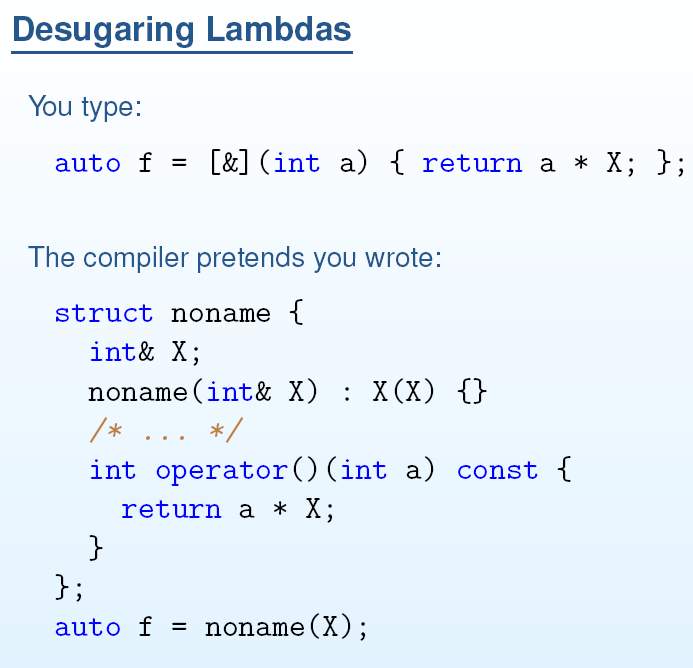Looking at C++14
A few weeks ago the C++ committee did meet in Issaquah, its most important result: the final draft for C++14. See Herb Sutters trip report for details, I have written an overview based on his trip report, clangs C++14 status page and of course the papers it self.
Looking at C++14
by Jens Weller
From the Article:
As I have read through most papers of last and this year, a short overview which papers now have made it into the standard. So, what are the new features of C++14? Already before the last meeting, clang had implemented all known C++14 features of the draft published after the Chicago meeting.

 A rapid-fire "now write this using lambdas" problem-solution drill with Sumant Tambe:
A rapid-fire "now write this using lambdas" problem-solution drill with Sumant Tambe: A fun(ctional) talk from QCon:
A fun(ctional) talk from QCon:
 Did you know that
Did you know that